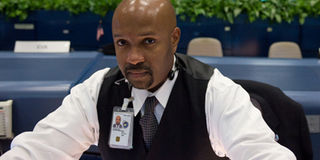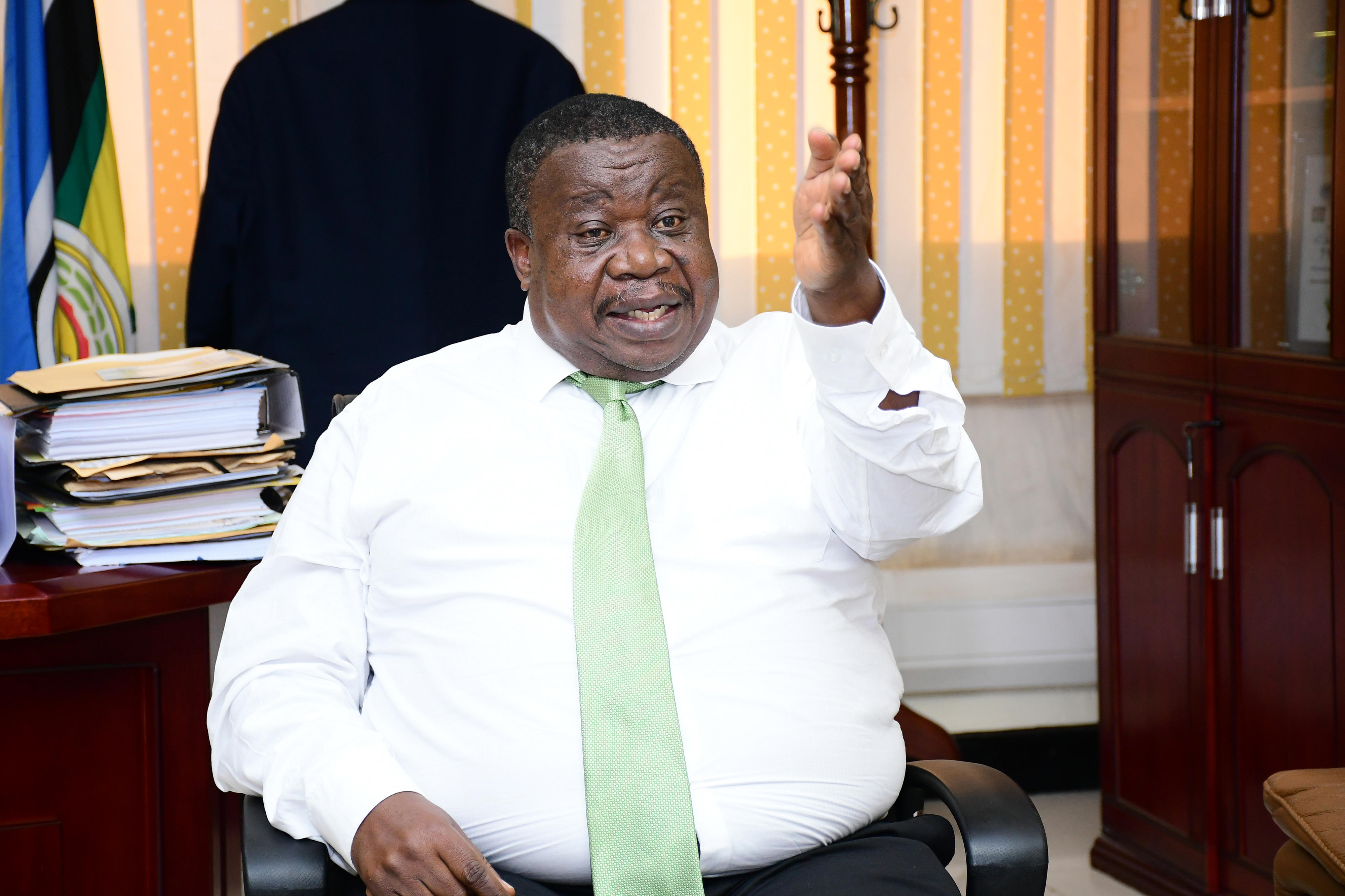Prime
Kwatsi Alibaruho: Meet NASA’s first black flight director

Kwatsi says NASA respected the proficiency and skills he brought to the job.
The first time I ever heard of the name – Kwatsi Alibaruho, was when I picked up a copy of Ebony Magazine (one of the leading publications for African Americans in the USA) from a newsstand in 2005.
The magazine had ranked him among the most influential black people in the USA at that time and as I read the article, I was particularly drawn to the name that sounded more African and Ugandan in particular. But who is this accomplished gentleman whose life’s story could very easily fit a Hollywood movie script? The following is Ronnie Mayanja’s conversation with him, six years after that chanced encounter in Ebony Magazine.
Born and raised in the US, Kwatsi Alibaruho is the son of Ugandan economist Dr. George and Dr. Gloria Alibaruho of Macon, Georgia. The Alibaruho’s were forced to flee Uganda soon after General Idi Amin Dada assumed the presidency of Uganda in what became one of the darkest history of Uganda’s turbulent past. A year later in May 1972, Kwatsi Alibaruho was born. At two years, his parents divorced and Kwatsi was raised by his mother who helped guide and direct his career.
Kwatsi recalls: “My mother always bought me elementary science books after realising my passion for space and science fiction programmes. She grounded me and taught me never to expect less in life. I knew I had to have the willingness to work, especially given the value my parents attached to a good quality education. They really invested in my education” he recalls.
By fourth and fifth grade Kwatsi recalls he knew he wanted a career in space engineering at The Massachusetts Institute of Technology (MIT). MIT provided perhaps the best opportunity for him to realise his dream. As a competitive University, he started off with a Grade Point Average of about 3.96 and a Scholastic Aptitude Test or reasoning test scores of 1420. He recalls working very hard to perform at this level in order to obtain the grades and also attended summer school in order to further his knowledge of science. In his freshman year, there were 1,200 students in his class.
Initially, he had started off as a computer science major but realised this was not a right fit for him. So in his junior year, he switched to the School of Avionics and Aerospace engineering. In 1993 he was one of two individuals that were selected to join NASA’s internship programme at the Johnson Space Centre in Houston.
It is here that he was later hired, working his way up from a flight controller to a flight director.
After completing more than 700 hours in 2005, Mr Alibaruho was certified becoming the very first African American to hold this position as lead mission control director breaking the colour barrier.
Leading a team of flight controllers, support personnel and engineering experts, a flight director has the overall responsibility to manage and carry out space shuttle flights and International space station expeditions.
A flight director also leads and orchestrates planning and integration activities with flight controllers, payload customers, space station partners and others. Inspite of a relative absence of people of colour in the industry, Kwatsi says NASA respected the proficiency and skills he brought to the job. “I was good at my job and I demonstrated the proficiencies that allowed me to excel purely on merit,” says Kwatsi. Kwatsi has been married for 15 years to Macresia Alibaruho a communications and data systems supervisor who works in flight operations at NASA and together they have a five- year-old son Mitchel Alibaruho Atkunda.
Kawtsi’s father, George, is now retired and lives in Kampala, Uganda.
Although Kwatsi is Ugandan, due to his busy schedule he has only managed to come visit Uganda twice in the past 12 years. Last year he took his wife and son to Uganda for a three weeks holiday.
He, however, maintains contact with many of relatives back in Uganda. Asked how he saw Uganda on his last visit, Kwatsi says: “As an outsider, I have observed that Uganda has made tremendous strides from the Amin era. The Uganda government has kept the peace and maintained stability. However, the country could benefit from an infusion of new ideas and infrastructural development.”
This year, Mr Alibaruho will be joining other Ugandans in the mile high city of Denver as they attend the 23rd annual UNAA Convention where he will present the keynote address. He sees this as an opportunity to interact with his fellow countrymen by sharing his life’s story and inspiring others to attain their maximum potential.
When not working at NASA, Kwatsi who is also an ordained Church minister, works as the head of the volunteer staff at his church where he is also involved in the Children’s ministry. On how he would prefer to be remembered, this great son of Africa with roots in Uganda, says: “I would rather be remembered as a Christian who loved his country and his family.” He also believes that God has a purpose and good intentions for each and every one of us.
Mr Kwatsi Alibaruho is a recipient of numerous awards, including the NASA Outstanding Leadership Medal, 2009, and the Rotary National Award for Space Achievement Stellar Award.




